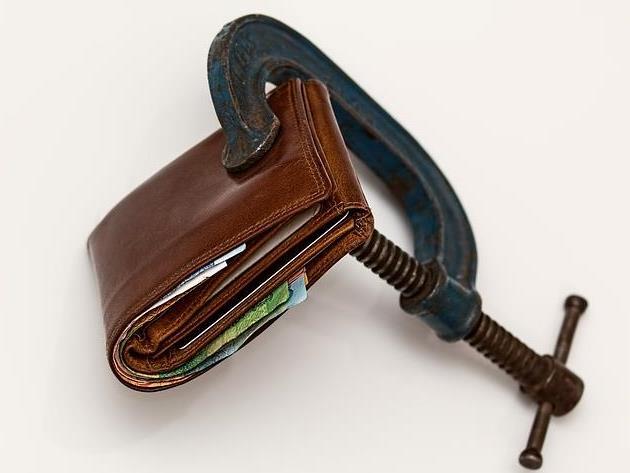Image via Pixabay
‘Budgets just don’t work for me… my income is too variable.’
‘I can’t make automatic debt payments because… well… variable income.’
‘There’s no way I could possibly do jury duty… don’t you know that I have variable income.’
I’ve heard all the excuses many times, sometimes out of my own mouth. But it’s not true. You can do all the same financial stuff that every one else does. You just might have to figure out a way to do it that makes sense with how you spend money.
You’re spending it wrong
I don’t mean that you’re spending it in the wrong places. I mean that you’re spending it at the wrong time.
One of the hardest things about variable income is that you have no idea how much is coming in from month to month so how can you make any sort of plan?
Regular income earners know exactly what’s coming in every month, that way they can make decisions about how much to save, how much to spend, all that fun stuff.
You may not have any idea if this month is going to be amazing or an exercise in coupon clipping.
So what’s a freelancer to do?
Shifting the space time continuum
What if you could know on the first of every month how much you have to spend that month?
Then you could make a plan, right? If it was a lot, you would know that you could save some… maybe chip away at the old debt. And if it was a low month you would know to keep your eyes open for sales on ground beef.
Sounds pretty perfect.
Well, you can.. if you just shift your spending. Instead of spending money as it comes in, you spend what you make this month, next month.
It’s a trick I learned from the good folks at YNAB. Every month you only spend what you made the month before. It’s still a variable amount, but suddenly you’re able to budget and know if you can afford to save/pay down your debt.
Making the transition
How do you make that transition? How do you handle months when you don’t make anything at all? Patience.
It took me around six months to be able to shift over from living “month to month” to a “live off last month’s income” format.
What you do is slowly save a full month’s income, and when that’s ready you make the switch.
On the month you switch tactics you live off the money you saved up, and then when the first of the next month comes around… you’ll have (hopefully) another pile of money ready to budget and spend.
You need how much you already spend in an average month. If you don’t know that already, use this handy worksheet to figure it your budget.
Managing dry months
Whatever system (or lack of system) you use there are going to be dry times. But at least with this basic idea of living off last month’s income, you’ll be able to see those months coming. Actually, the dry month isn’t so bad because, remember, you’ll be living off the last month’s income. It’s the next month that’s going to be really rough so you will know to plan a lean time in advance.
Set up an emergency fund to get you through bad times and add a little bit it o it in the months you can afford to save.
Getting out of the uncomfortable comfort zone
You might be sitting there thinking: ‘That doesn’t sound easy at all.’.
Certainly transitioning to a live-on-last-month system takes a little effort to set up. But is it ‘easy’ to live pay cheque to pay cheque? Is it Is it ‘easy’ to deal with the uncertainty of every month wondering if you’re going to make it?
What’s ‘easy’ is assuming that things always have to be this way.
The hard truth is that with a bit of effort you can take control of your finances, however variable your income.





